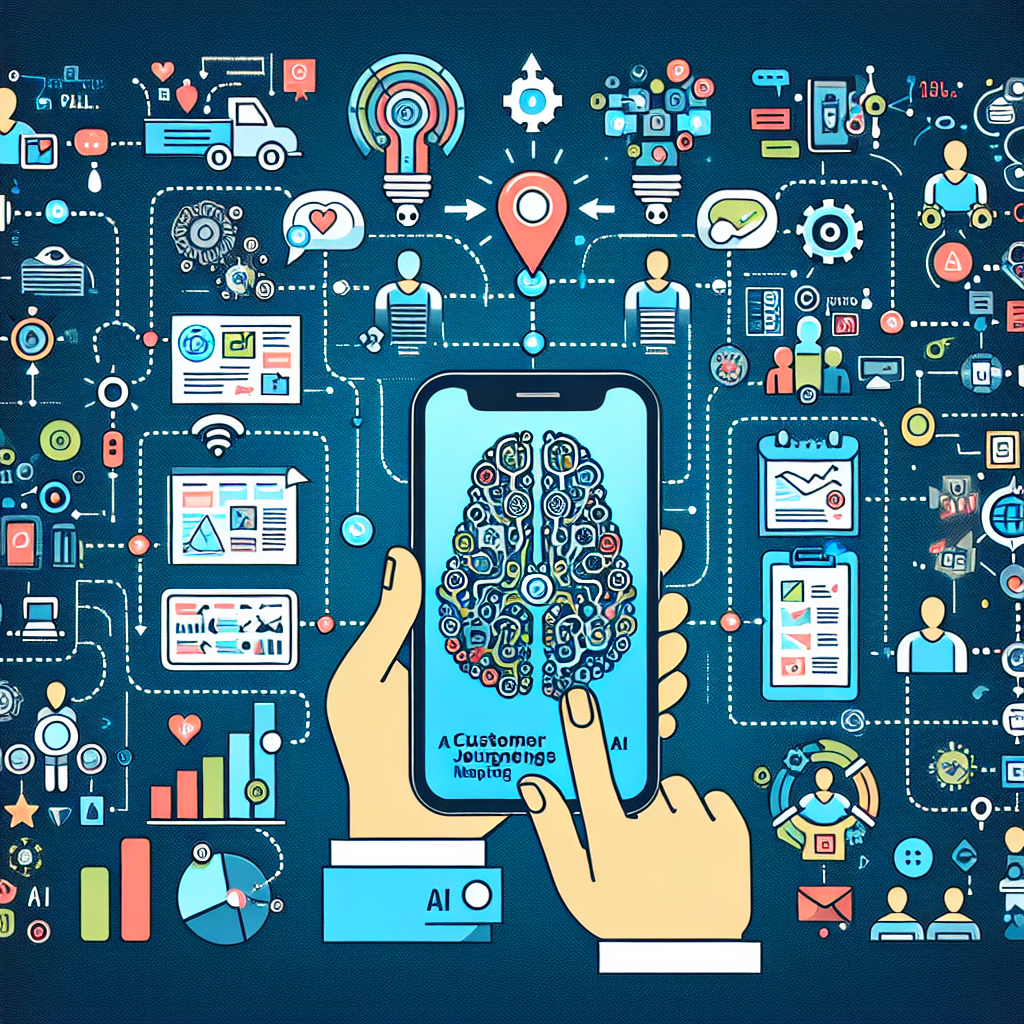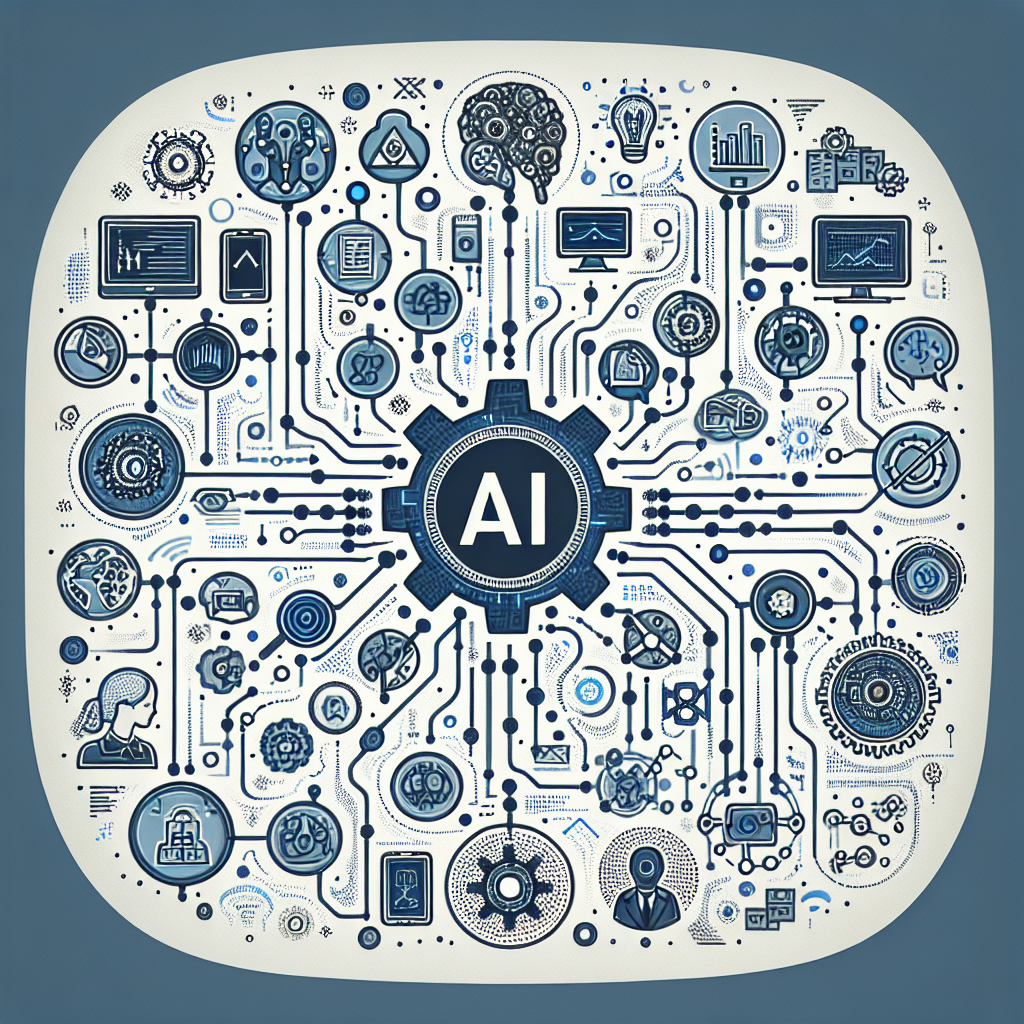
With the advent of AI technologies, traditional phone systems have undergone an evolutionary shift and are now empowered with artificial intelligence (AI) capabilities to enhance customer service. AI in phone systems plays a crucial role in understanding customer interactions, providing them with timely responses, and improving the overall customer journey.

In the context of phone-based customer service, Customer Journey Mapping is a method used to epitomize and evaluate customer interactions from their point of view. Salesforce defines it as a "visual representation of every experience your customers have with you." AI-powered phone systems augment these interactions to meet and exceed customer expectations.
Advancements in AI technologies include natural language processing and machine learning algorithms, which have allowed for substantial improvements across various facets of customer service. They efficiently process large volumes of data, understanding nuances in language, intent, and sentiment, and eventually result in providing personalized customer experiences, as the Appers suggests.
Furthermore, AI-powered IVR (Interactive Voice Response) systems have transformed the way businesses handle their customer relationship management. Instead of relying on long, monotonous menus and frustrating waits for human agents, AI-powered IVRs can accurately route callers based on their specific needs and can even resolve common issues without human intervention. These modern systems, as discussed in the blog Samespace, can decrease hold times, improve customer satisfaction, and increase overall call center efficiency.
In the following sections, we will delve into the details of how AI aids in mapping the customer journey on phone-based services and the benefits it brings to businesses and customers alike.
In an era where customer satisfaction is paramount, leveraging Artificial Intelligence (AI) in phone-based customer service can be a game-changer. With its inherent capabilities, AI can transform the customer journey, particularly in call handling. This post will delve into some of the AI features such as call routing, sentiment analysis, and immediate data retrieval, which are key in streamlining the customer service process.
Call routing is a feature that optimizes the distribution of incoming calls to the right agents. AI-driven routing systems use machine learning algorithms and an array of data — customer profiles, purchasing history, previous interactions, and more — to make intelligent decisions. By routing calls to the agents who are most equipped to meet specific customer needs, AI ensures minimal wait times and enhances customer satisfaction. (IBM Watson provides more insights on AI-driven routing systems).
The ability of AI to perform sentiment analysis plays a huge role in interpreting a customer's emotional state during a call. This provides valuable insights, allowing agents to modify their tone or approach depending on the customer's mood. To understand more about how sentiment analysis can impact customer services, visit the Call Centre Helper post on the topic.
Moreover, AI can offer immediate data retrieval, boosting the efficiency of customer support. With a quick and comprehensive access to data, agents can promptly address customer queries, reducing call duration. The rapid retrieval also minimizes the instances of putting customers on hold, fostering a positive customer experience. The Salesforce blog provides a detailed account on data retrieval systems.
Overall, integrating AI into phone-based customer services can drastically improve the trasition of the customer journey. Its capabilities of intelligent call routing, sentiment analysis, and immediate data retrieval not only save valuable time but also add a personal touch, thereby taking customer satisfaction to unprecedented levels.
Today’s competitive business landscape demands companies to completely understand their customers, predicting their behaviors and needs. Artificial Intelligence (AI) is reshaping how businesses achieve this by mapping phone-based customer journeys. This involves tracking, recording, and analyzing customer-phone interactions to anticipate future behaviors, preferences, and to bolster customer satisfaction.

AI leverages phone-based interactions to compile significant data points, observing every phone call's progress, the decisions made by the customer, their sentiments, and actions taken post-call. This data is then processed and analyzed by sophisticated AI algorithms to illustrate accurate customer journey maps. Woven within these journey maps is the potential to reveal profound insights about customers, eliciting improvements in product offerings and service alignments, ultimately enhancing a brand's customer experience.
Taking advantage of advancements in Machine Learning (ML) and Natural Language Processing (NLP), AI can accurately interpret voice commands, recognize emotions, comprehend customer intent, and auto-generate transcripts from the phone conversations. Based on these insights, companies can dig deeper into each customer’s journey, improving their customer success strategies while fostering relationships.
The benefits of AI in phone-based customer journey mapping are myriad, from personalizing the customer experience to predicting potential customer churn cases ahead of time, implementing proactive measures to retain customers. Additionally, AI-driven insights can help companies restructure their marketing strategies, product development, and overall decision-making processes. Undoubtedly, AI is poised to redefine the way brands communicate and interact with their customers over the phone.
The recent advancements in AI technology have revolutionized phone-based customer journey mapping, improving customer experiences drastically. Let's dive into a couple of well-documented success stories.
Case 1 - Amtrak
Amtrak, the national railroad corporation for the United States, implemented an AI-powered customer service system named Julie. Using natural-language processing and machine learning, Julie understands and answers customer inquiries via phone, simplifying their journey. This resulted in a 25% increase in bookings and saved a whopping $1 million in customer service expenses within the first year itself.
Case 2 - Metro Bank UK
UK's Metro Bank, a high street bank known for its customer-centric approach, also embraced AI for enhancing their customer journey. Their cloud-based AI system, powered by IBM Watson, enables the bank to understand customer needs better and provide personalized experiences. The results were extraordinary—a 20% increase in customer service satisfaction rates and significant improvements in call center efficiency.
These businesses, along with many others, have seen substantial benefits from AI in phone-based customer journey mapping. The proof lies in the improved customer satisfaction rates and impressive financial savings. With continuous improvements, AI can only get better over time, promising to greatly enhance the customer experience."
Artificial Intelligence (AI) has been a game changer for building robust telephonic customer service systems. Its adoption has not only revolutionized phone-based interactions but is also significantly modifying how customers are served and understood. An essential area this technology is contributing towards is customer journey mapping.(source)

AI thrives on making sense out of raw data and then applying this intelligence in decision making tasks, such as predictive forecasting and trend analysis. But to effectively do so, AI needs to be integrated with other business systems. An unbroken flow of information between AI tools and platforms such as CRM and ERP software can enhance the range and accuracy of insights, as well as assist in customer journey mapping.
For instance, CRM software can be trained to respond to certain phone conversations using AI, leading to a seamless and personalized customer service. On the other hand, ERP systems can work perfectly in line with AI-powered phone systems to optimize supply chain processes influenced by customer interactions.
Read More
To conclude, integrating AI with various business utilities provides a comprehensive view of customer interactions. While understanding the past behaviour of the customers, it also helps businesses to predict future trends. AI in phone-based customer journey mapping can be a significant step towards achieving a superior level of customer satisfaction, only if its integration is well-thought-out and strategically executed.
Artificial Intelligence (AI) has been at the forefront of many technological revolutions, and the realm of telecommunications is no exception. In this digital age, phone-based customer service holds immense significance as it's one of the primary points of contact businesses have with their customers. Using AI to map the customer's journey has the potential to improve customer experience and build stronger relationships.
AI in customer journey mapping enhances customer service by providing personalized experiences, offering efficient solutions, and decrypting complex customer data. Forbes talks about how AI helps identify user patterns, preferences, and needs through constant analysis.
Looking at the future, experts believe that AI will drive advanced, intelligent IVR (Interactive Voice Response) systems. AI's ability to interpret and understand human language, thanks to Natural Language Processing, means customer calls will be anything but monotonous. Customers will be efficiently guided through their queries with customized solutions, boosting both satisfaction and retention rates.
Additionally, AI might lead to a surge in the use of Voice Assistants. Voicify predicts a future where customers will be able to handle tasks during the call itself without even having to engage with a human operator.
To be ready for these changes, businesses need to focus on data - the lifeblood of AI. Businesses should adapt systems and practices that allow seamless collection, interpretation, and execution of customer data. Customer journey insights gained from AI should be used to train team members, improve products, and adapt policies that align with evolving customer expectations. The goal is to be proactive rather than reactive, predicting customer behavior to provide solutions even before they know they need them.
In conclusion, there's an AI revolution on the horizon for phone-based customer service. As we prepare for these changes, the key aspect is to remember that AI is a tool. Its effectiveness is determined by how well it can be blended into the humane side of customer service.
Start your free trial for My AI Front Desk today, it takes minutes to setup!








